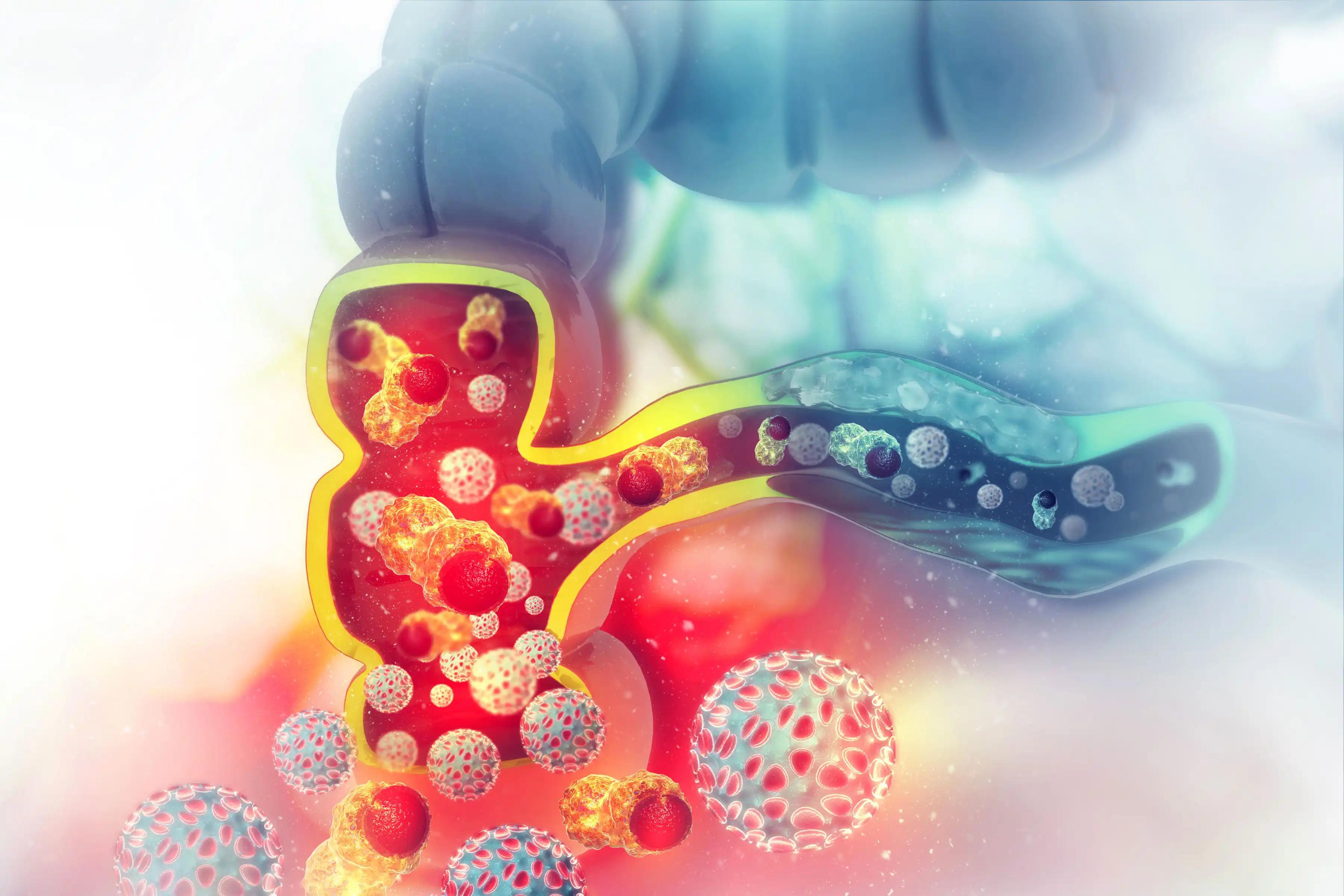KEY TAKEAWAYS
- The study aimed to explore nucleotide metabolism in CRC tumor cells and their interactions with the TME.
- The study concluded that NUhighepi promotes tumor growth, while NME1 inhibits metastasis, offering new therapeutic targets.
The complexities of nucleotide metabolism in colorectal cancer (CRC) tumor cells are not yet fully understood. An in-depth analysis of specific tumor clusters and their interactions with the tumor microenvironment (TME) could provide valuable insights into these promising therapeutic networks.
Junzhi Liu and the team aimed to explore nucleotide metabolism in CRC tumor cells and their interactions with the TME for potential therapeutic insights.
The study integrated 10 types of single-cell enrichment scoring methods to analyze colorectal cancer cell types, validated through 4 additional single-cell cohorts. Tumor cell groups were identified using average scores, and functional analyses were conducted using cellphonedb, monocle, inferCNV, SCENIC, and Cytotrace. The RCTD approach mapped single-cell groupings onto spatial transcriptomics to assess cell dependency and pathway activity, distinguishing tumor cell subtypes.
Differential expression analysis highlighted core genes in nucleotide metabolism, with single-cell and spatial transcriptomics revealing their roles in tumor cells and the immune microenvironment. Prognostic models were developed from bulk transcriptome data to predict immune therapy responses, and laboratory experiments were performed to confirm the biological function of these core genes.
The results showed that nucleotide metabolism is notably higher in tumor cells, categorizing them into NUhighepi and NUlowepi groups, with NUhighepi exhibiting more aggressive malignancy traits. Analysis using stlearn revealed that NUhighepi has close interactions with fibroblasts, a finding confirmed by spatial transcriptomics through MISTy, which showed NUhighepi’s reliance on fibroblasts.
They identified NME1 as a crucial gene in nucleotide metabolism, with in vitro tests confirming its role in inhibiting metastasis. A stable prognostic model (NRS) was developed using machine learning algorithms to predict survival and immune therapy responses. Additionally, targeted drugs for both NUhighepi and NUlowepi groups were identified, and laboratory experiments demonstrated that NME1 can inhibit CRC tumor cell proliferation and invasion.
The study concluded that NUhighepi may promote tumor growth, while NME1 plays a role in inhibiting metastasis. These findings enhance the understanding of nucleotide metabolism in CRC and offer valuable targets for disrupting tumor properties.
Funding was provided by the National Natural Science Foundation of China (NSFC).
Source: https://pubmed.ncbi.nlm.nih.gov/39075485/
Liu J, Li H, Wang L, et al. (2024). “Spatial transcriptome and single-cell reveal the role of nucleotide metabolism in colorectal cancer progression and tumor microenvironment.” J Transl Med. 2024;22(1):702. Published 2024 Jul 29. doi:10.1186/s12967-024-05495-y



